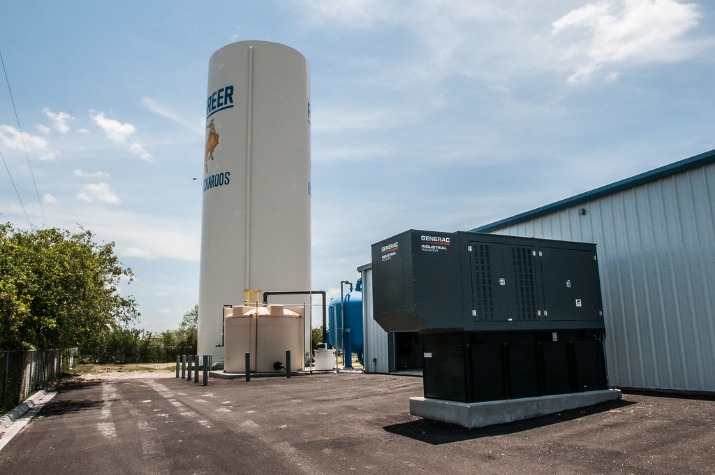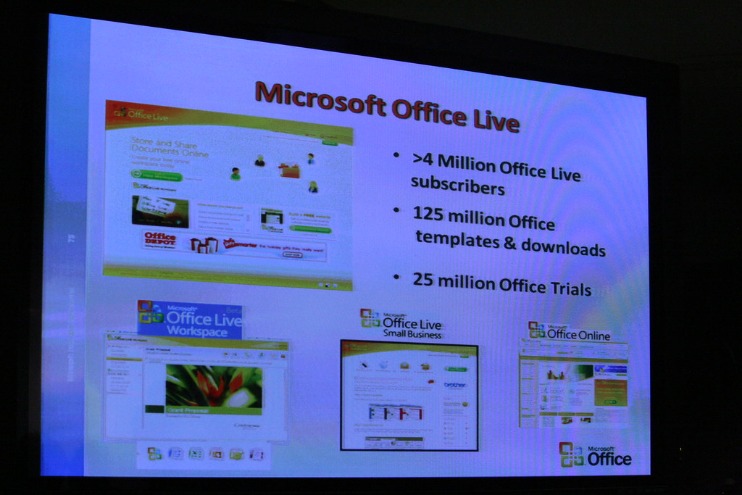Overview of Business Technology Grants
Business technology grants are financial assistance programs designed to support companies in adopting and integrating innovative technology solutions. These grants aim to foster growth, improve efficiency, and enhance competitiveness by helping businesses access the latest tools and resources. Understanding the scope and application process of these grants is essential for organizations seeking to leverage technology to advance their operations.
Definition and Purpose
A business technology grant is a financial assistance program designed to support companies in adopting, developing, or enhancing technological solutions. These grants aim to foster innovation, improve competitiveness, and promote digital transformation across various industries. By providing funding, the grants help businesses access advanced technologies that might otherwise be financially out of reach.
Eligible Businesses and Industries
Business Technology Grants are financial assistance programs designed to support companies in adopting and advancing innovative technologies. These grants aim to foster growth, competitiveness, and modernization within various industries by providing funding opportunities that reduce the financial barriers associated with technology implementation.
Eligible businesses and industries typically include small and medium-sized enterprises (SMEs), startups, and established companies across diverse sectors such as manufacturing, healthcare, agriculture, information technology, and environmental services. Grant programs often target organizations that demonstrate a commitment to innovation, technological advancement, and scalable growth.
- Small and Medium-sized Enterprises (SMEs)
- Startups with innovative technology ideas
- Manufacturing companies seeking automation and modernization
- Healthcare providers implementing new healthcare IT solutions
- Agricultural businesses adopting smart farming technologies
- Environmental service providers utilizing green technologies
- Information technology firms developing new software or digital solutions
Types of Technology Supported
Business Technology Grants are funding opportunities provided to organizations to support the adoption, implementation, and advancement of various technological solutions. These grants aim to promote innovation, improve operational efficiency, and enhance competitiveness in the marketplace.
There are several types of technology supported through these grants, including hardware like computers, servers, and networking equipment; software such as enterprise resource planning systems, customer relationship management tools, and cybersecurity programs; as well as digital infrastructure improvements like cloud computing and data storage solutions.
Application Process
The application process for the business technology grant is designed to be straightforward and accessible for applicants looking to enhance their technological capabilities. It involves submitting a comprehensive proposal that outlines the project, its benefits, and the required funding. Properly completing each step of the process is essential to increase the chances of securing the grant and advancing your business initiatives.
Eligibility Criteria
The application process for the business technology grant begins with submitting a comprehensive online application form carefully detailing your project objectives, budget plan, and technological needs. Applicants are typically required to provide supporting documents such as a business plan, financial statements, and proof of eligibility. Once the application is submitted, it undergoes a review process where eligibility and project impact are assessed.
To be eligible for the business technology grant, applicants must generally be registered businesses or organizations operating within a specified region or industry. Preference is often given to small and medium-sized enterprises that demonstrate innovation and potential for growth through technological advancements. Other criteria may include a certain minimum project budget, demonstrated financial stability, and alignment with the grant provider’s strategic objectives. Applicants should ensure they meet all specific eligibility requirements outlined in the grant guidelines before applying.
Application Materials Needed
The application process for the business technology grant involves several key steps designed to ensure a thorough review of each applicant’s proposal. Applicants should first carefully review the eligibility criteria and guidelines provided by the granting organization. Once confirmed eligible, applicants must complete the official application form available on the grant’s website.
Applicants need to gather and submit all required materials to support their application. These typically include a detailed project proposal outlining the technology implementation plan, a budget estimate, and a timeline for project execution. Additionally, applicants should provide a business plan demonstrating the company’s background, current technological capabilities, and how the grant will impact growth. Letters of support from partners or stakeholders and financial statements may also be required. Ensuring all application materials are complete and submitted by the deadline is essential for consideration in the selection process.
Submission Guidelines and Deadlines
The application process for the business technology grant involves submitting a comprehensive proposal that outlines your project’s objectives, technological innovations, and potential impact on business growth. Applicants should carefully follow the provided submission guidelines to ensure all necessary documents and information are included. It is essential to review the specific criteria to align your application accordingly. Deadlines are strictly enforced; late submissions will not be considered. Typically, applications are accepted within a designated period, and applicants are advised to submit their materials well in advance to avoid any last-minute issues. Ensure that all components, including project descriptions, budgets, and supporting documents, are complete and up-to-date to enhance your chances of success.
Funding Details
Funding details play a crucial role in securing the necessary resources for business technology grants. Understanding the intricacies of grant funding can help organizations effectively plan and allocate funds for technological advancements. This information provides valuable insights into the application process, eligibility criteria, and available financial support to foster innovation and growth in the business sector.
Grant Amounts and Limits
Funding details for business technology grants outline the financial support available to eligible organizations, aimed at enhancing their technological capabilities. Grant amounts vary depending on the specific program and are often structured to cover a significant portion of project expenses, with maximum limits set to ensure equitable distribution. Typically, grants can range from a few thousand dollars to several hundred thousand dollars, depending on the scope and scale of the business technology project. Limits are usually established to prevent oversubscription and to promote fair access, with some programs imposing caps on the total amount awarded per applicant or project. It is important for applicants to review the specific guidelines of each grant to understand the available funding, applicable limits, and any matching fund requirements that may apply to maximize their chances of success.
Disbursement Schedules
The funding details for a business technology grant typically outline the total amount of funds available, eligibility criteria, and the specific purposes for which the funds can be used. Disbursement schedules specify how and when the funds will be distributed to recipients, often broken down into multiple phases or installments based on project milestones or timeframes. These schedules ensure transparent allocation of resources and facilitate effective project management, helping businesses to plan their technology upgrades or innovations accordingly.
Eligible Expenditures
The Business Technology Grant provides financial support aimed at fostering innovation and technological advancement within small and medium-sized enterprises. The funding covers a range of eligible expenditures to ensure companies can effectively deploy new technologies that enhance their operations.
Eligible expenditures include costs related to research and development, procurement of new hardware and software, and the implementation of technological solutions. Additionally, expenses for technical consulting, staff training, and software licenses are considered eligible. Eligible costs must be directly related to the projects that align with the objectives of the grant and be incurred after the award date.
Evaluation and Selection
Evaluation and selection are critical steps in the process of awarding business technology grants, ensuring that resources are allocated effectively to projects with the highest potential for innovation and impact. This phase involves assessing proposals based on criteria such as feasibility, relevance, and potential benefits, allowing decision-makers to identify the most promising initiatives. A thorough evaluation guarantees that funding supports initiatives aligned with organizational goals and encourages the development of cutting-edge technological solutions.
Assessment Criteria
Evaluation and selection are critical steps in the process of awarding a business technology grant, ensuring that the most qualified and innovative projects receive funding. During this phase, applicants are assessed based on specific criteria designed to measure their potential impact, feasibility, and alignment with the grant’s objectives. Clear assessment criteria help maintain transparency and fairness throughout the selection process. Typical criteria include the innovativeness of the technology proposed, the project’s alignment with strategic business goals, the capacity of the applicant to execute the project, expected economic benefits, scalability, and sustainability. Additionally, factors such as budget realism, technical feasibility, and the overall contribution to advancing technological capabilities are also considered. A thorough evaluation ensures that resources are allocated to projects with the highest potential to foster business growth and technological advancement, maximizing the value of the grant program.
Selection Process
Evaluation and selection are crucial steps in the business technology grant process, ensuring that funds are awarded to applicants who demonstrate the potential for impactful innovation and effective use of resources. During this phase, applications are carefully reviewed based on predefined criteria such as project feasibility, technical merit, alignment with grant objectives, and potential for market success. A structured selection process helps maintain transparency and fairness, often involving multiple rounds of assessment by an expert panel.
The selection process typically begins with initial screening to filter out ineligible or incomplete applications. This is followed by a detailed evaluation where proposals are scored and ranked according to specific factors like innovation, sustainability, and collaboration potential. Once shortlisted, applicants may be invited for interviews or presentations to further clarify their projects. Final decisions are made through committee deliberations, with successful candidates receiving grants to propel their business technology initiatives forward.
Notification and Feedback
Evaluation and selection are critical stages in the business technology grant process, ensuring that the most promising and impactful projects are chosen for funding. During this phase, proposals are thoroughly reviewed based on criteria such as innovation, feasibility, and potential benefits, allowing for an objective assessment of each application. Following this, the notification process involves informing applicants about the outcome of their submissions, whether they have been successful or not. Providing timely and clear communication helps manage expectations and maintains transparency. Feedback is a vital component, offering unsuccessful applicants constructive insights to improve future proposals while also highlighting strengths for successful applicants. Overall, these steps help foster trust and promote continuous improvement within the business technology grant program.
Post-Award Requirements
Post-award requirements are essential for ensuring the successful management and compliance of business technology grants. After receiving a grant, organizations must meet specific obligations, including reporting, financial management, and project progress tracking. Adhering to these requirements helps maintain transparency, accountability, and eligibility for future funding opportunities, ultimately supporting the advancement of innovative business technology initiatives.
Reporting and Monitoring
Post-Award Requirements, Reporting, and Monitoring are essential components of managing a business technology grant effectively. Once a grant is awarded, recipients must adhere to specific guidelines to ensure compliance with the funding agency’s expectations. This includes submitting regular progress reports, financial statements, and performance metrics to demonstrate how the funds are being utilized and the project’s advancements.
Monitoring activities involve ongoing oversight to verify that the project remains aligned with its proposed objectives and budget. Awardees are often required to maintain detailed records, conduct periodic evaluations, and provide updates to stakeholders or grant administrators. These measures help ensure transparency, accountability, and successful completion of technology initiatives that can foster innovation and economic growth.
Use of Funds Compliance
Post-Award Requirements and Use of Funds Compliance are critical components in managing a business technology grant effectively. Once a grant is awarded, recipients must adhere to specific reporting and documentation obligations to demonstrate proper use of funds and progress on project milestones. Compliance ensures that funds are utilized solely for approved purposes, such as technology development, infrastructure upgrades, or training initiatives, in accordance with the grant terms. Regular financial and progress reports are often required to maintain transparency and accountability. Failing to meet these requirements can result in penalties, repayment obligations, or disqualification from future funding opportunities. Therefore, establishing robust internal controls and oversight mechanisms is essential for successful grant management and sustaining the trust of funding agencies.
Performance Evaluation
Post-award requirements in a business technology grant involve ongoing compliance with the grant terms, proper management of allocated funds, and timely submission of reports. These obligations ensure transparency and accountability throughout the project duration. Performance evaluation plays a critical role in assessing the progress and impact of the funded technology initiatives, measuring benchmarks against objectives, and identifying areas needing improvement. Regular evaluations help maintain alignment with grant goals, support effective resource utilization, and demonstrate the project’s success to stakeholders and funding agencies.
Benefits of Business Technology Grants
Business technology grants offer valuable support to companies seeking to enhance their technological capabilities. These grants provide essential funding that helps businesses adopt innovative tools, improve operational efficiency, and stay competitive in a rapidly evolving market. By leveraging such grants, companies can accelerate growth, reduce costs, and develop new products or services with technological advancements.
Innovation Enhancement
Business technology grants play a crucial role in fostering innovation and growth within organizations by providing financial support aimed at enhancing technological capabilities. These grants enable businesses to access cutting-edge tools and resources that might otherwise be beyond their reach, ultimately leading to increased competitiveness and efficiency.
- Promotion of Innovation: Grants encourage businesses to develop new products, services, and processes, driving technological advancement.
- Cost Reduction: Financial assistance helps offset the high costs associated with research, development, and technology acquisition.
- Enhanced Productivity: Access to modern technology streamlines operations and improves overall business performance.
- Market Expansion: Technological upgrades can open new markets and customer segments, fostering business growth.
- Skills Development: Grants often support training initiatives, equipping staff with essential skills for emerging technologies.
- Investment in Future Growth: Funding allows companies to pilot innovative projects with reduced financial risk, paving the way for sustainable long-term development.
Competitive Advantage
Business technology grants offer numerous benefits that can significantly enhance a company’s operations and growth prospects. By providing essential funding, these grants enable businesses to adopt innovative technologies without the immediate financial burden, fostering increased efficiency and productivity.
Securing a business technology grant can also grant a competitive advantage by allowing companies to stay ahead of industry trends and implement cutting-edge solutions. This early adoption often results in better customer experiences, streamlined processes, and improved market positioning.

Additionally, technology grants can facilitate access to expert resources, research opportunities, and networking connections, which collectively contribute to sustainable growth. Businesses that leverage these grants position themselves as forward-thinking and adaptable, making them more attractive to investors and partners.
Overall, business technology grants are valuable tools that not only support technological advancement but also provide strategic benefits that can lead to long-term success in competitive markets.
Economic Development Impact
Business technology grants play a crucial role in driving economic development by providing essential funding to help businesses adopt innovative technologies. These grants enable companies to upgrade their infrastructure, improve efficiency, and stay competitive in a rapidly evolving market. As a result, they stimulate local economies by fostering new business opportunities, attracting investments, and creating jobs. Additionally, technology grants support small and medium-sized enterprises (SMEs) that might not otherwise afford cutting-edge solutions, leading to increased productivity and sustainability. Overall, these grants contribute to a more dynamic and resilient economic environment, supporting long-term growth and development.
Resources and Support
Resources and support play a vital role in ensuring the success of businesses seeking technology grants. Access to detailed information, expert guidance, and financial assistance can make a significant difference in navigating the application process and implementing innovative solutions. By leveraging the right resources, entrepreneurs and organizations can maximize their chances of securing funding and advancing their technological capabilities.

Application Assistance Programs
Application Assistance Programs are essential resources for businesses seeking technology grants, providing guidance throughout the application process. These programs often offer expert advice, workshops, and personalized support to help entrepreneurs prepare strong applications and increase their chances of success. By leveraging these resources, businesses can better understand grant requirements, develop compelling proposals, and navigate any complexities involved in securing funding.
Technical Support and Training
Securing a business technology grant often includes access to comprehensive resources and support to help organizations succeed. These grants typically offer dedicated technical support to assist with implementation, troubleshooting, and ongoing maintenance of technological solutions. Additionally, recipients may receive training programs designed to enhance staff skills, ensure proper utilization of new tools, and maximize the impact of their technology investments. Such support and training are essential components that enable businesses to effectively integrate innovative technologies and achieve their growth objectives.
Guidelines and FAQs
Resources and Support are essential components for applicants of the business technology grant to successfully navigate the application process and implement technological advancements. These resources include detailed guides, contact support, and access to expert advice to ensure applicants have all necessary information. Guidelines provide clear instructions on eligibility, submission requirements, and evaluation criteria, helping applicants prepare their proposals effectively. FAQs address common questions, offering quick clarifications on deadlines, funding scope, and technical specifications, thereby reducing uncertainties and fostering a smooth application experience.





